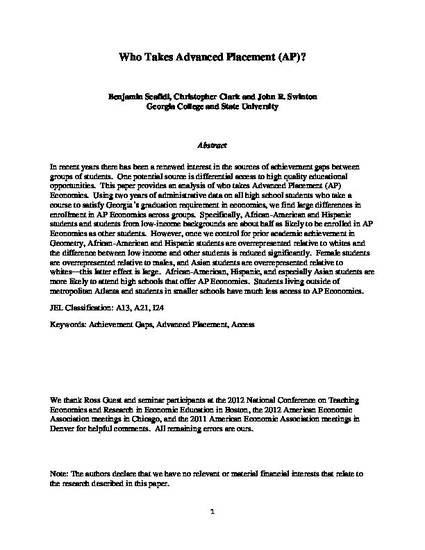
In recent years there has been a renewed interest in the sources of achievement gaps between groups of students. One potential source is differential access to high quality educational opportunities. This paper provides an analysis of who takes Advanced Placement (AP) Economics. Using two years of administrative data on all high school students who take a course to satisfy Georgia’s graduation requirement in economics, we find large differences in enrollment in AP Economics across groups. Specifically, African-American and Hispanic students and students from low-income backgrounds are about half as likely to be enrolled in AP Economics as other students. However, once we control for prior academic achievement in Geometry, African-American and Hispanic students are overrepresented relative to whites and the difference between low income and other students is reduced significantly. Female students are overrepresented relative to males, and Asian students are overrepresented relative to whites—this latter effect is large. African-American, Hispanic, and especially Asian students are more likely to attend high schools that offer AP Economics. Students living outside of metropolitan Atlanta and students in smaller schools have much less access to AP Economics.
